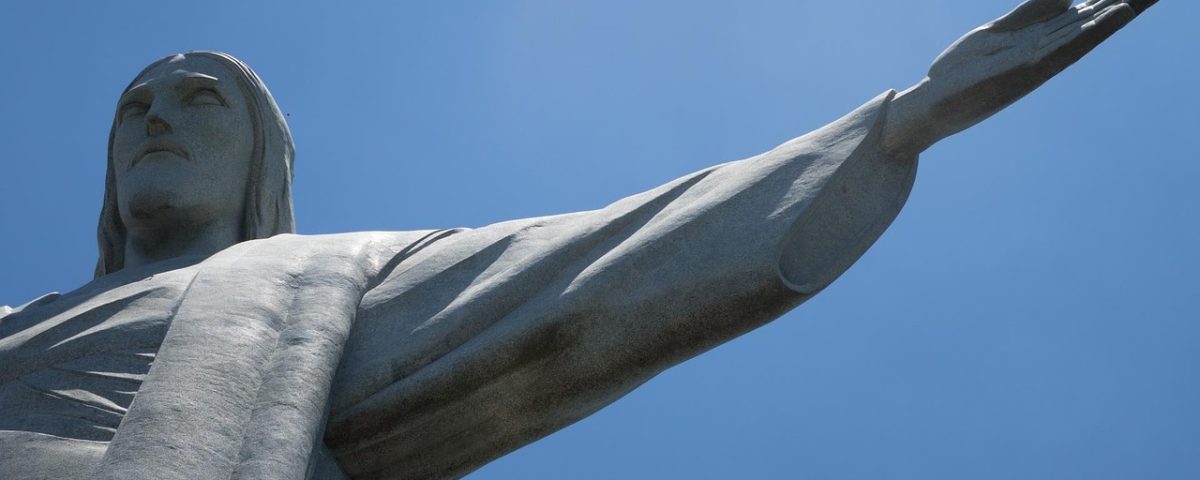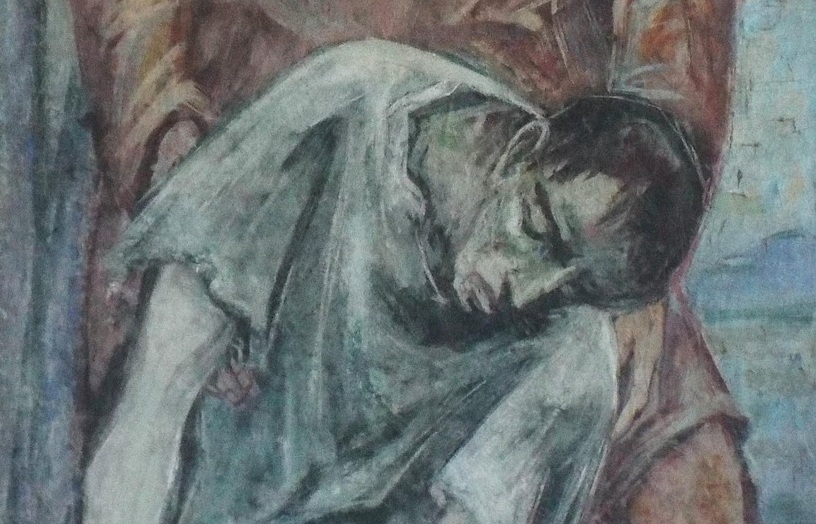What makes Divine Mercy divine—to put it as simply as possible—is that divine mercy is relentless. That is, it is always present, always available, always there. That’s the thing: that it endures forever, that the mercy of the Lord endures forever.[1]
Divine mercy is inexhaustible, and that’s because—again, I’m speaking simply—it is a mercy which belongs to God. That is, mercy is a reflection God’s nature; mercy is not something God merely practices, mercy is something God is. There is an old Anglican prayer called the “Prayer of Humble Access,” a beautiful prayer that I grew up with; and a line of it, which I’ll never forget, reads, “But thou are the same Lord, whose property is always to have mercy.”[2] That’s what that means: that God is merciful because it belongs to his nature. But that’s just the theology of the thing.
What mercy looks like in practice, we find in the Scripture. For instance, in the very beginning, or at least immediately after the fall, it’s God who goes out in search of man and woman. “Where are you?” he asks in Eden, as man and woman hide, clothed in shame.[3] It’s God, you see, who initiates the search; it is the creature that flees the Creator, the Creator who pursues. This is an enduring truth. I think of what our dear late Pope Francis wrote early in his papal ministry, that “God never tires of forgiving us; we are the ones who tire of seeking his mercy.”[4] That’s always been the case. I see the struggle in the confessional all the time; I see the struggle in myself—the struggle to believe that God still wants me, that he’ll still forgive me.
But he does, and he will—and you too. I think of the story in Genesis of Jacob at Bethel, of the dream he had wherein he wrestled with God. To me that story is all about God’s mercy. Jacob is not a very impressive person; he doesn’t come across as particularly holy. Yet, God grabs Jacob anyway, because of God’s promise to Abraham, not for anything Jacob had accomplished; and God does not let go of him—no matter how much Jacob wrestles back, no matter how pathetically the creature fights his Creator. God does not let Jacob go. In fact, God says to him, “Behold, I am with you and will keep you wherever you go…for I will not leave you until I have done that of which I have spoke to you.” You see, mercy is more about what God says he’ll do and less about what you think you must beg him to do. That’s why God is always more merciful than we think. “Surely the Lord is in this place; and I did not know it,” Jacob said.[5] That’s what I mean when I say that God’s mercy is relentless, always present, always available, always there. God doesn’t give up is what I am trying to say; and he doesn’t give up on you—which is what I want you to hear.
Which brings me to the wounds. It is an amazing image, an amazing moment to contemplate: the risen Lord, his hands extended, showing his disciples his wounds—he still has wounds—but he says, “Peace be with you.”[6] What an amazing thing to say. What does that mean? Again, we can talk about the theology of the moment, about the peace won for us through Christ’s suffering, death, and resurrection, that by “his stripes we are healed.”[7] But I want this morning, instead, to take that image of the risen Christ’s wounds and his words of peace, and I want to wonder aloud what it says about our wounds, our scars.
Now I don’t want to lose the point here; it’s a simple point. We have wounds, and those wounds do not bring us peace; Jesus has wounds too, but he shows us his wounds and gives us peace—what does that mean? What do Christ’s wounds say to our wounds? First, I think they say that his wounds are the source of our forgiveness and the source of whatever peace is possible after the wounds of sin. Jesus basically says this explicitly; that’s what the rest of the story is about. “If you forgive the sins of any, they are forgiven.”[8] Get to confession, my friends. There’s peace there. That’s where this story leads.
But there is more to say—about the wounds, your wounds now. After the resurrection, Jesus still has wounds. But those wounds are now sources of peace, sacraments of peace. Which is exactly what your wounds may now become, believe it or not—sacraments of peace.
Let me put this very plainly. Imagine you were once a terrible sinner—someone everyone looked down on, someone no one trusted, someone everyone considered dirty; maybe you have a bad reputation; maybe you’re not proud of your past; maybe it hurts to remember it. But you have been forgiven by Christ. Now you are a noble, beautiful daughter of God; now you are a new man in Christ. But you may still have scars, and there may still be wounds. And for the people around you, trying to pull you back down, trying to keep you down, back in your past—well, they may still only see your wounds. But now, that’s not the truth. Your scars, now to you, well, they’re reminders of God’s forgiveness, reminders of his love for you even in that dark time. But now, peace be with you. That’s what Jesus says, that’s what really matters—the peace that is now with you, the peace that makes you a new child of God. Now those wounds, those forgiven wounds: now they bear testimony to God’s mercy in your life, that even after all you’ve done, God still loves you as his dear child. Now, that is the truth, not what your past says, not what anyone says. And that’s what I want you to hear and accept, not what the world thinks of you but what God says of you out of his relentless mercy, his divine mercy—that you are his.
And finally, again, I just want to quote Pope Francis, because this truth was so dear to everything he tried to say. It’s what I’m trying to say, trying to describe why it is we should never despair, why you should never give up either on God or yourself—no matter how mired in sin we may find ourselves. This is what he said: “Time and time again, he bears us on his shoulders. No one can strip us of the dignity bestowed upon us by this boundless and unfailing love. With a tenderness which never disappoints, but is always capable of restoring our joy, he makes it possible for us to lift up our heads and to start anew. Let us not flee from the resurrection of Jesus, let us never give up, come what will.”[9] Happy Easter, friends. It is still Easter. And mercy is what it means, divine mercy for you. Amen.
[1] Psalm 136
[2] The Prayer of Humble Access
[3] Genesis 3:9
[4] Pope Francis, Evangelii Gaudium 3
[5] Genesis 28:15-16
[6] John 20:19
[7] Isaiah 53:5
[8] John 20:23
[9] Pope Francis, Evangelii Gaudium 3
© 2025 Rev. Joshua J. Whitfield










